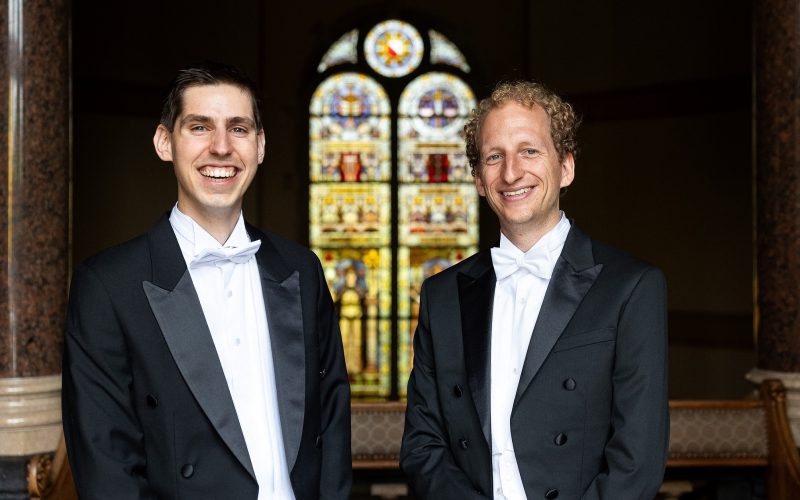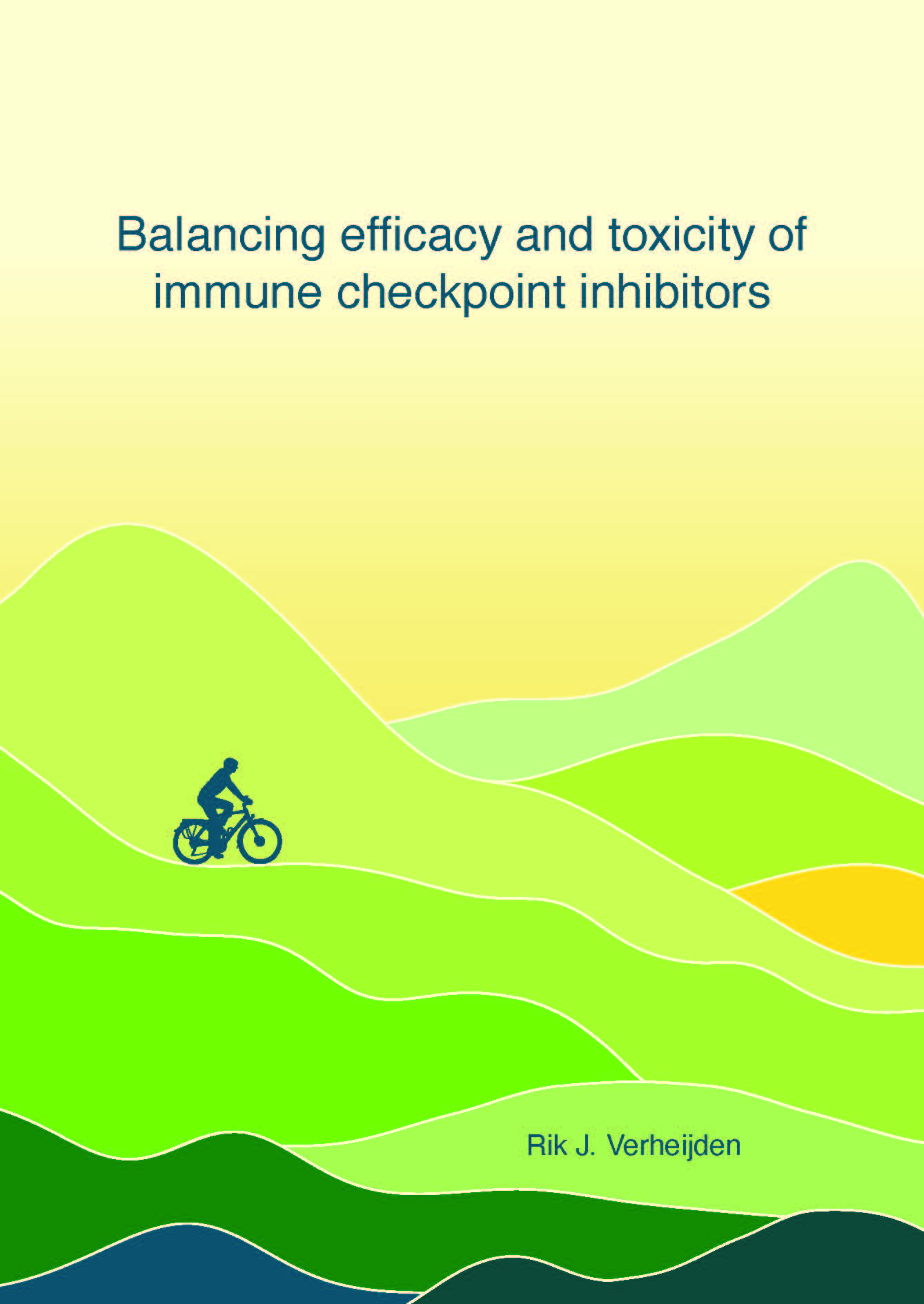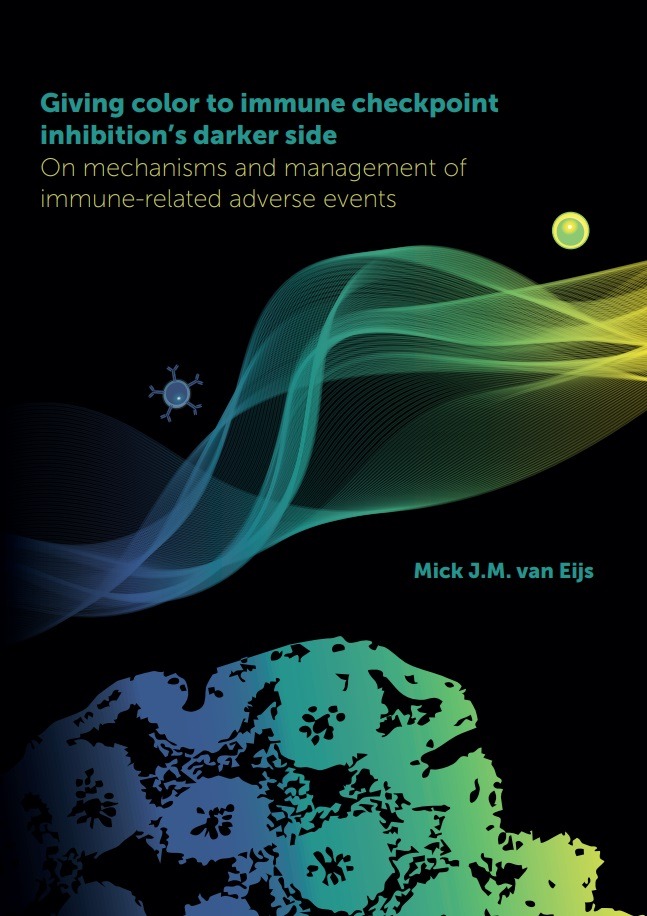While immune checkpoint inhibitors offer durable responses and potential cures for many patients with cancer, managing toxicity associated with their use remains a challenge. The PhD tracks by Rik Verheijden and Mick van Eijs (both UMC Utrecht) highlight the importance of carefully balancing immunosuppressive treatment of checkpoint inhibitor toxicity to optimize outcomes. The findings also emphasize the need for personalized treatment strategies, incorporating factors like patient activity levels, gut microbiome, and immune responses, to enhance patient care and improve survival.
Immunotherapy with immune checkpoint inhibitors (ICIs) has revolutionized cancer treatment, offering hope for patients with various tumor types. These medicines work by activating the immune system to attack cancer cells, and in some patients, they lead to long-term control of metastatic cancer, even after treatment has stopped. Since indications for ICI therapy are continuously expanding (both more tumor types and earlier stages), an increasing number of patients is being treated with ICIs. However, this success comes with challenges, particularly in terms of immune-related adverse events (irAEs), where the immune system attacks healthy parts of the body, causing severe toxicities that mimic autoimmune diseases such as skin rash, diarrhea, pneumonitis, hepatitis, and thyroid dysfunction. Such irAEs are not only a burden to patients, but can also lead to hospitalization, discontinuation of treatment, and occasionally death.
In his PhD thesis, Rik Verheijden, MD (Department of Medical Oncology, UMC Utrecht) describes research that explores the factors linked to these side effects and investigates whether treatment of side effects with immunosuppression impacts patients’ survival. His research, along with studies by fellow PhD candidate Mick van Eijs, MD (Center for Translational Immunology, UMC Utrecht), underscores the complexity of managing irAEs. Van Eijs used multiomics, including flow cytometry and RNA sequencing, to study the immune responses in patients treated with ICIs. The results revealed that irAEs following different therapies show distinct immune mechanisms. For instance, anti-PD-1 treatment typically results in a Th1-dominant immune response, while combined anti-CTLA-4 and anti-PD-1 therapy induces broader immune activation.
Both PhD candidates emphasized the impact of immunosuppressive drugs, like prednisone, used to treat irAEs. While these drugs can reduce inflammation and mitigate toxicity, they can also have negative effects on antitumor immunity. Their joint research in the UNICIT cohort (a biobank at UMC Utrecht containing samples of more than 600 patients treated with ICIs) showed that that patients who were more physically active before starting ICI therapy tended to experience fewer severe side effects and lived longer. Additionally, they found that the balance of gut bacteria (microbiome) was associated with the severity of toxicity. Verheijden further explored how immunosuppressive treatment for irAEs might impair the effectiveness of ICI therapy, especially when high doses of prednisone or other immunosuppressive drugs are used.
Interestingly, both scientists found that the treatment of severe irAEs must be carefully balanced. Verheijden’s research indicated that treating toxicity with high doses of immunosuppressives could reduce survival, suggesting that the efficacy of checkpoint inhibitors might be compromised. Van Eijs’ work explored how personalized treatment strategies, taking into account biomarkers and immune responses, can help design treatment algorithms that manage irAEs without compromising the effectiveness of ICI therapy.
In conclusion, while immune checkpoint inhibitors offer durable responses and potential cures for many cancer patients, managing the toxicity associated with their use remains a challenge. The research in these PhD tracks highlight the importance of carefully balancing immunosuppressive treatment with ICI therapy to optimize outcomes. The findings also emphasize the need for personalized treatment strategies, incorporating factors like patient activity levels, gut microbiome, and immune responses, to enhance patient care and improve survival.
Rik Jasper Verheijden, MD (1997, Oss) defended his PhD thesis cum laude on July 8, 2025 at Utrecht University. The title of the thesis was “Balancing efficacy and toxicity of immune checkpoint inhibitors”. Supervisors were prof. Karijn Suijkerbuijk, MD, PhD (Department of Medical Oncology, UMC Utrecht) and prof. Anne May, PhD (Department of Epidemiology and Health Economics, UMC Utrecht). Rik aspires to become a medical oncologist, integrating research with patient care.
Mick Jan Maria van Eijs, MD (1994, Susteren) defended his PhD thesis on July 14, 2025 at Utrecht University. The title of the thesis was “Giving color to immune checkpoint inhibition’s darker side – On mechanisms and management of immune-related adverse events.” Supervisors were prof. Karijn Suijkerbuijk, MD, PhD (Department of Medical Oncology, UMC Utrecht) and prof. Femke van Wijk, PhD (Center for Translational Immunology, UMC Utrecht). Mick works as a resident-not-in-training in internal medicine at St. Antonius Hospital in Nieuwegein and aspires to become an internist and translational researcher.


